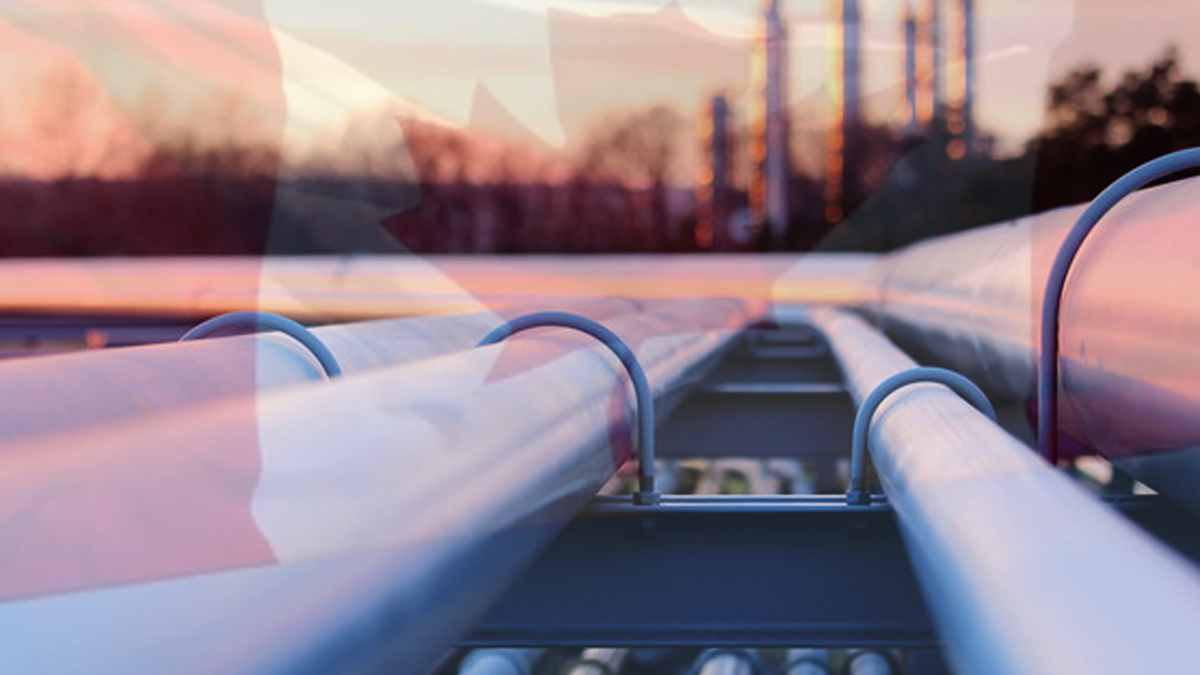Gregory Tobin is the National Content Manager for the Canada Strong & Proud network of pages.
“Phasing out oil and gas.”
That phrase has been ringing real hollow the last couple of days.
But it’s on the to-do list for Prime Minister Trudeau and his new, hand-picked environment minister Steven Guilbeault.
They want to transition Canada away from a country that produces a best-in-the-world oil and gas product and instead stick Canadians with unreliable wind turbines and solar panels.
Sounds really darn stupid right about now, doesn’t it?
We care about ethical coffee, we like that our shampoo isn’t tested on animals and we want to make sure that our food is sourced as humanely as possible. So why don’t we have the same standards about our and the world’s energy? It’s a conversation many in Canada have been trying to start for years.
One nice little statistic that’s percolated to the top of the discourse since Putin invaded Ukraine is the fact that Canada has imported over $9,000,000,000 worth of oil from Putin since 1988. That’s $9 billion – with a ‘B.’
So while Trudeau and Guilbeault have been stifling pipelines, the oilsands, carbon tech, and so on at home, Putin has become one of the main energy suppliers of Europe and the world.
In fact, Russia exported $55.5 billion worth of natural gas in 2021.
Canada, on the other hand, really only sells our energy to ourselves and the United States, and that’s on the decline too since the Keystone XL pipeline was nixed by Biden, with no fight from Mr. Trudeau.
We produce the best energy, to the best standards, and with the best technology in the entire world. We have the third largest oil reserves in the world, and we have plenty of coastline from which to export it.
So, I think I speak for a lot of Canadians when I say, “what the hell!?”
There are several answers, and the first one is bad leadership.
As I mentioned, Prime Minister Trudeau and our new environment minister Steven Guilbeault are committed to a bad, anti-energy ideology. They want to phase out our oil and gas sector, stick Canadians with unreliable wind turbines and solar panels and leave us totally dependent on foreign sources of energy.
But their worn out ideology only allows for them to ban, block, and shut down.
And did I mention – they are going through with this plan at a time when world demand for energy is only going up?
Foreign special interest groups, funded with foreign dollars, have engaged in an active campaign to shut down our energy – and they’ve done it all with the prime minister’s approval.
If you want to talk about foreign funding, the billion raked in by environmental NGO’s over the last two decades makes the Freedom Convoy protest fund look like a meagre Sunday collection plate at a dying church.
So why the push by foreign actors to cancel our energy? The simple answer is because the people who help fund many of the activists know we produce the best energy and don’t want their products to be displaced by Canada’s.
And with every barrel of oil stifled in Canada, it means global emissions are going to go up as bad actors like Putin and Xi Jinping are the ones to supply the world with their energy.
The EU is moving to label natural gas as green, and Norway wants to try and displace Russia as a major supplier of this green natural gas to Europe.
Canada should be a major player in this. The revenues generated could build hospitals, roads and schools. It could pay for doctors, nurses, social workers, teachers – you name it.
The energy industry in Canada supplies hundreds of thousands of well paying jobs to Canadians. Nearly 14,000 Indigenous Canadians are employed in the oil and gas sector.
We should be damn proud of this legacy, and we should be eager and excited to share it with the world. We could reduce global emissions, displace despot oil, and bolster our economy in amazing ways.
Yet our Prime Minister and his allies, including Guilbeault, want to phase it out.
This needs to change. And if it wasn’t obvious before the bombs fell on Kiev, it should sure as hell be obvious now.

























